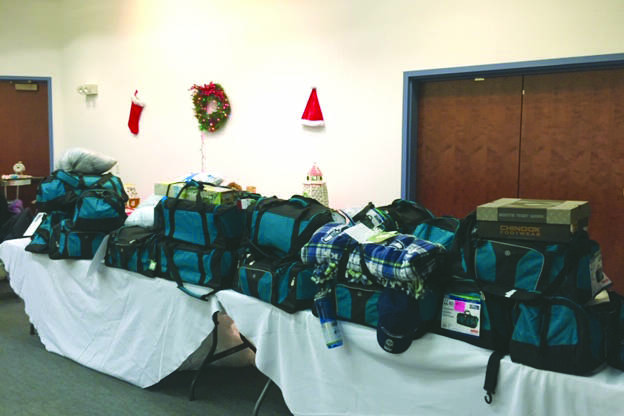Students in Transition — an 18-year-old Kenai Peninsula Borough School District program that helps homeless students and students no longer in the custody of their parents or legal guardian — is still serving students amid the new coronavirus pandemic.
The school district is expecting to see an increase in the number of families experiencing economic hardship amid the global pandemic and economic crisis, the program’s coordinator, Kelly King, said via email.
As of April 16, the program was serving 171 students.
King said staff have made a “concerted effort” to contact all of the students and families the program works with. King said this contact helps the program assess what each family needs on a regular basis, which can include access to materials or devices that support classroom assignments.
“We strongly believe in the value of connection,” King said. “We are also continuing to provide information to students and families about available community and KPBSD based resources.”
King said Students in Transition has been in close communication with the district’s nutrition department, ensuring enrolled students have access to the district’s school meal prep program for breakfast and lunch.
For dinner, King said the district has partnered with the Boys & Girls Clubs of the Kenai Peninsula, which has provided dinner meals to many of the program’s students.
Enrollment in the program happens all year long, with students being referred by peers, parents and school staff.
When a student is referred, King does a needs assessment to make sure the child qualifies for the federal definition of homelessness. After a student is enrolled, they are enrolled for the entire school year. Normally, needs relating to school attendance are addressed by the program, including school supplies, hygiene products, free meals, transportation to and from school and all of those things that can be a big stressor for a family when their housing situation is vulnerable. Enrollment will continue to grow all the way until the last day of school. On average, the program serves around 250 students per year.
King said the program is still taking referrals and expect that as coronavirus concerns continue, the district will see an increase in people experiencing housing insecurities.
“We encourage any youth or family who feels that their living situation may qualify for support to contact us,” King said.
Students and families become homeless for a variety of reasons, including domestic violence, natural disaster, illness or disease and little-to-no health insurance, lack of affordable housing within a community, divorce or death in a family, substance abuse or mental health disorders, loss of a job or lack of employment or abandonment.
If you have questions or a referral for the SIT Program, contact Kelly King for Central Peninsula and Seward schools: 907-714-8869, and for Ninilchik and Southern Peninsula schools contact Jane Dunn at 907-235-4664.

